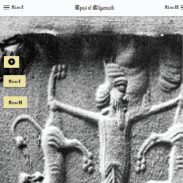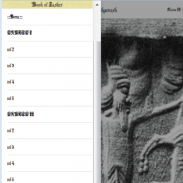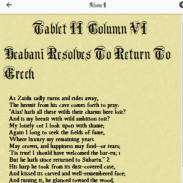





Ishtar and Izdubar -Epic of Gilgamesh

Опис програми Ishtar and Izdubar -Epic of Gilgamesh
This is a Victorian poetic translation of the saga of Izdubar. Who is Izdubar? Izdubar is a literal translation of the ideograph for 'Gilgamesh', and was how the hero of the Gilgamesh saga was known when this book was written in the 1880s. A lexicographic tablet was finally discovered several decades later in which Izdubar was equated with Gilgamesh.
When this was written, only fragments of the epic had been found, and Hamilton had to supply continuity and motivation in several cases. The attentive reader will notice some differences here between the Gilgamesh epic as known today and Hamiltons' poem. In Gilgamesh the King's companion, Enkidu is originally a wild man, created to distract Gilgamesh. In Izdubar the equivalent character is a sage who is lured from the wilderness to interpret the King's dreams. Humbaba is a ogre in Gilgamesh, a supernatural being, who Gilgamesh and Enkidu battle using supernatural means. Here (called Khumbaba) he is a human being, a King whom Izdubar defeats in combat.
World "Izdubar" has been replaced with world "Gilgamesh" all over text.
























